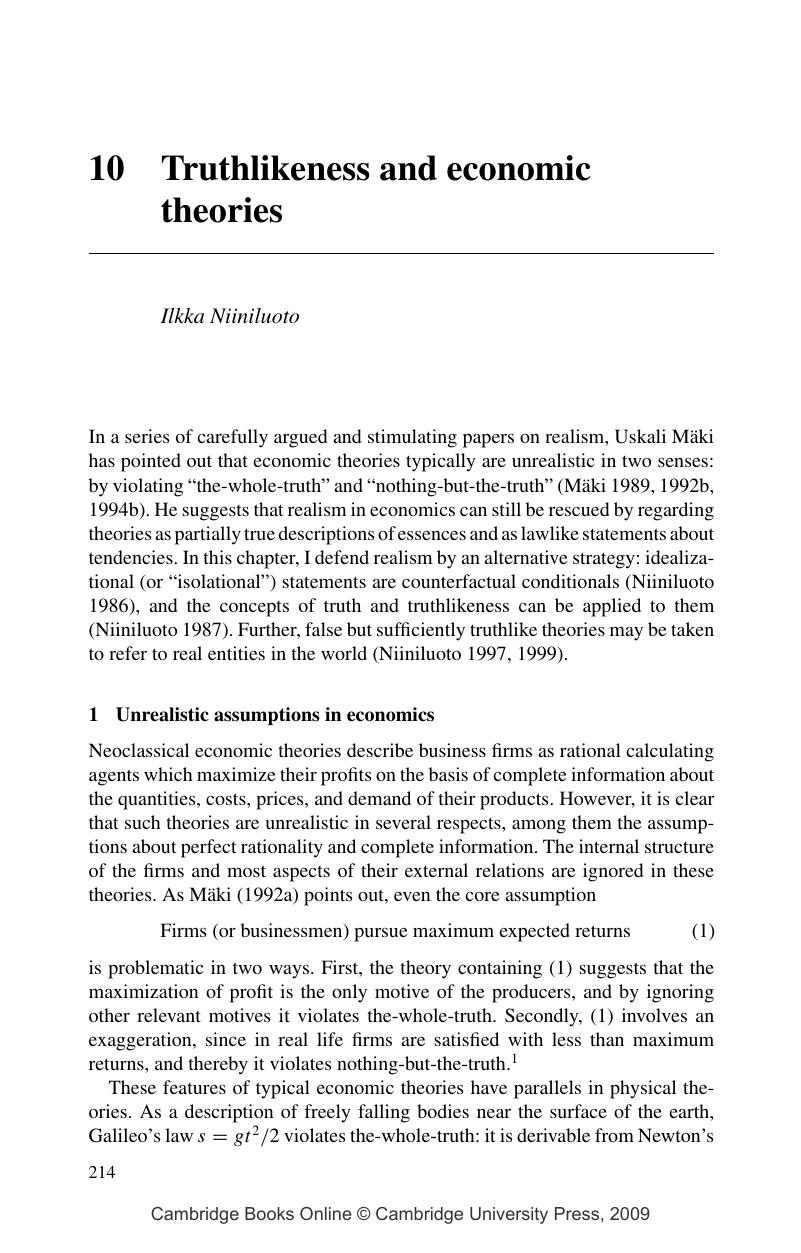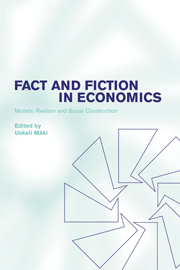Book contents
- Frontmatter
- Contents
- Notes on the contributors
- Preface
- I Introduction
- II Setting the scene
- III Economic models and economic reality
- 5 Credible worlds: the status of theoretical models in economics
- 6 The limits of causal order, from economics to physics
- 7 Econometrics and reality
- 8 Models, stories, and the economic world
- 9 Economic models and reality: the role of informal scientific methods
- 10 Truthlikeness and economic theories
- IV The constitution of economic reality
- V The institutions of economics
- Index
- References
10 - Truthlikeness and economic theories
Published online by Cambridge University Press: 22 September 2009
- Frontmatter
- Contents
- Notes on the contributors
- Preface
- I Introduction
- II Setting the scene
- III Economic models and economic reality
- 5 Credible worlds: the status of theoretical models in economics
- 6 The limits of causal order, from economics to physics
- 7 Econometrics and reality
- 8 Models, stories, and the economic world
- 9 Economic models and reality: the role of informal scientific methods
- 10 Truthlikeness and economic theories
- IV The constitution of economic reality
- V The institutions of economics
- Index
- References
Summary

- Type
- Chapter
- Information
- Fact and Fiction in EconomicsModels, Realism and Social Construction, pp. 214 - 228Publisher: Cambridge University PressPrint publication year: 2002
References
- 8
- Cited by



